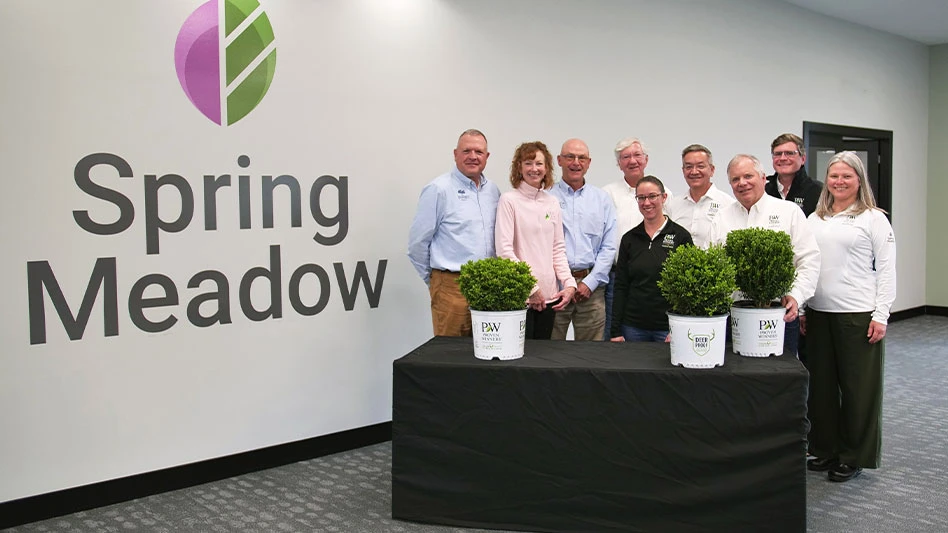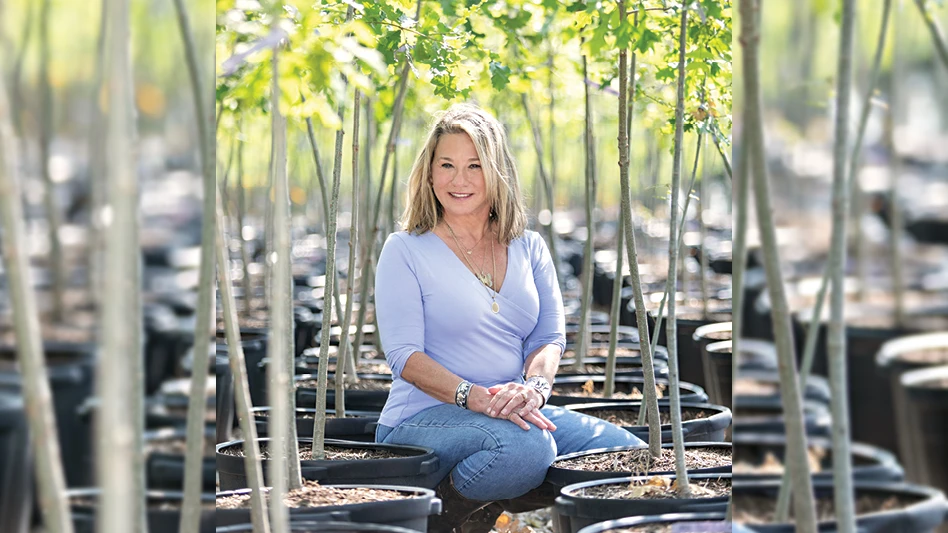
Kromstar Studios | Adobestock
We have all watched as the clock ticks down in a sports game. Decisions made in the last plays in the last few minutes are critical to the outcome. Procrastination in taking action doesn’t work in sports or in the marketplace of business.
Owners of nurseries, garden centers and greenhouses often reach an age when the question of succession looms large. After years of dedication and hard work they can reach a point where no family members or friends are ready, willing or able to continue the legacy of a life’s work. Those heirs have lives in other cities, good jobs, families and homes. They are not going to move back to take over the business.
We often hear people say: “I’m turning 70 pretty soon; I would like to consider selling my business in the next 5 years.” Actuarially speaking, that’s a roll of the dice. What happens if the clock runs out early? The spouse, in actuality the family, is now in the nursery business, whether he or she wanted to be or not.
Without a proactive plan, liquidation at any price is left to the survivors. Any liquidation will yield far less than an orderly presentation of the business in the marketplace will bring.
Selling a business has a limited window of opportunity. The journey from operating an enterprise to successfully selling can be riddled with roadblocks, particularly when it comes to determining its value. This could be due to factors such as market conditions, personal circumstances, or changes in the industry.
Every business can be sold to someone if it is priced right. The big challenge for owners who created a personal legacy is understanding the real value of the enterprise in the market.
Reality in selling a business
As an advisor to people in this situation we are often asked straight out, “What can I get for my business if I sell it?” Sometimes that answer is encouraging. Sometimes reality is more difficult to accept.
The truth is that the seller will always want more than the buyer wants to pay. It’s natural for entrepreneurs to perceive their businesses as more valuable than it might objectively be. That’s what makes a market. The good news is every day horticultural businesses are being bought and sold across the country. It is an active marketplace right now.
Every business can be sold to someone if it is priced right. The big challenge for owners who created a personal legacy is understanding the real value of the enterprise in the market. The emotional investment, along with years of toil and dedication can distort perceived value.
The role of a valuation expert
Enter the valuation expert. These people are professionals trained in assessing the worth of businesses objectively. What an owner needs or wants out of a sale plays less of a role than what someone will actually pay for your company. What the valuation expert looks for is a realistic defensible value that can be expected when it is sold.
These experts employ various methods to determine a business’s value, taking into account factors such as revenue, profitability, market trends, and potential for growth. By conducting a thorough analysis, they provide an evaluation that serves as the benchmark for the eventual sale.
Valuation experts not only help in setting a realistic asking price but also play a crucial role in negotiations. Their assessment provides sellers with leverage and credibility during discussions with potential buyers. A professional valuation report adds a layer of legitimacy to the sales process which instills confidence in prospective buyers.
The tax trap
While running a business, owners often benefit from certain tax advantages, particularly as the enterprise grows. People write off everything they can, and they should.
Some have been operated for years with the goal of paying as little income tax as possible. That frugal practice can be a two-edged sword. People want to buy an enterprise that demonstrates a return on the investment they make. The strategy of keeping taxes low can reflect negatively in published financial statements than reality might be. This is why it is important to add back discretionary withdrawals, living expenses drawn from the business and rapid depreciation taken as the new equipment is acquired. Once the real free cash flow is determined, a value based on a multiple of earnings can be calculated.
If that method for determining value fails to produce a number that is realistic in a sale, then the seller must consider the asset base of the operation to create a value someone will pay.
The assets in such a valuation play the key role in developing that realistic value. These assets include real estate, facilities, inventory and equipment as the basis for the value when capacity to produce free cash flow is not easily demonstrated.

It stands to reason that any stable, high cash flow horticultural enterprise with a deep bench of management and a predictable robust rate of return will always be easy to sell.
Real estate value determination
The base value is the real estate valuation. This is best created by a local certified real estate appraiser who understands the comparable values in the area. They aren’t expensive relative to the whole and can be worth the investment for a seller. The real estate appraiser will value the real estate and the improvements (buildings attached to the ground). They will usually not recognize the value of temporary structures like cold frames, irrigation systems and other specialized fixtures. That is the job of an appraiser skilled in horticultural valuations.
Vehicles, machinery and equipment
The equipment assets group is best valued by a qualified personal property appraiser of machinery, tractors, trucks, skid steers and other equipment. As these are sold on the open market those results are readily available on the internet. Discovering the auction value of the equipment in current condition is what an appraiser is able to determine by research.
Inventory value
The inventory of trees, shrubs, container goods and supplies are valued at the stage of growth as is where is. If the stock is in the ground unharvested, that value is reflected appropriately. This is best done by someone uniquely familiar with the marketplace of nursery stock, processes and net present value. This value must be developed with the understanding that if a quick sale were required, there would be significant discounting of value. That value is not derived from the selling price of the operation. Since no nursery, greenhouse of garden center operates in a vacuum, the valuator will look at similar regional enterprises and consider replacement values for the inventory.
Many times the asset value is the basis for how horticultural enterprises are actually priced for sale. How well those assets are being used helps increase or decrease the value of them to the buyer.
Easy to sell
It stands to reason that any stable, high cash flow horticultural enterprise with a deep bench of management and a predictable robust rate of return will always be easy to sell. That’s what everyone is looking for. On the other hand, if you don’t have that premium operation, don’t give up hope. There is a marketplace with budding horticultural entrepreneurs who will pay you for the hard work you have invested in your legacy as a stepping stone into ownership. It happens every day.
Look out for the buzzer during the last play of your game.
Get curated news on YOUR industry.
Enter your email to receive our newsletters.
Explore the September 2024 Issue
Check out more from this issue and find your next story to read.
Latest from Nursery Management
- The HC Companies, Classic Home & Garden merge as Growscape
- Eason Horticultural Resources will now officially be known as EHR
- BioWorks receives EPA approval for new biological insecticide for thrips, aphids, whiteflies
- Ellen Mackenbach-Lakeman appointed new CEO of Dümmen Orange
- Southern Garden Tour sets 2025 dates for trial garden open houses
- New book explores plants that thrive in Rocky Mountains
- American Floral Endowment establishes Herman Meinders Memorial Tribute
- These companies are utilizing plastic alternatives to reduce horticultural waste






